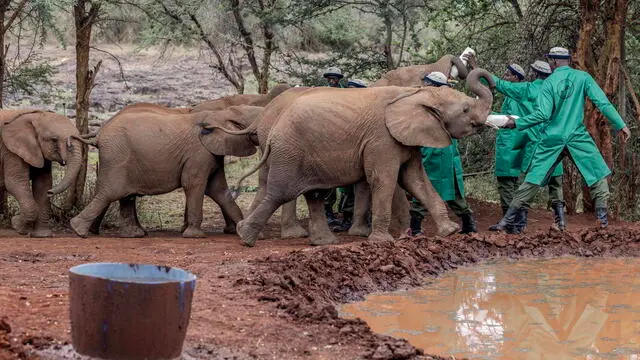Lo Zimbabwe abbatterà 200 elefanti a causa della carenza di cibo

HARARE, 13 SET - Lo Zimbabwe abbatterà 200 elefanti mentre affronta una siccità senza precedenti che ha portato a carenze alimentari, una mossa che gli consentirà anche di affrontare una popolazione di animali in crescita: lo ha fatto sapere l'Autorità per la fauna selvatica del Paese. Il Paese ha "più elefanti del necessario", aveva affermato nei giorni scorsi in Parlamento il ministro dell'ambiente dello Zimbabwe, aggiungendo che il governo aveva incaricato la Zimbabwe Parks and Wildlife Authority (ZimParks) di iniziare il processo di abbattimento. I 200 elefanti saranno cacciati in aree in cui si sono scontrati con gli umani, tra cui Hwange, sede della più grande riserva naturale dello Zimbabwe, ha detto all'Afp il direttore generale di ZimParks Fulton Mangwanya. Lo Zimbabwe ospita circa 100.000 elefanti e ha la seconda popolazione di elefanti più grande al mondo dopo il Botswana. Grazie agli sforzi di conservazione, Hwange ospita 65.000 di questi animali, più di quattro volte la sua capacità, secondo ZimParks. Lo Zimbabwe ha abbattuto gli elefanti l'ultima volta nel 1988. La vicina Namibia ha dichiarato questo mese di aver già ucciso 160 animali selvatici in un abbattimento pianificato di oltre 700 animali, tra cui 83 elefanti, per far fronte alla sua peggiore siccità da decenni.
Riproduzione riservata © Giornale di Brescia
Iscriviti al canale WhatsApp del GdB e resta aggiornato